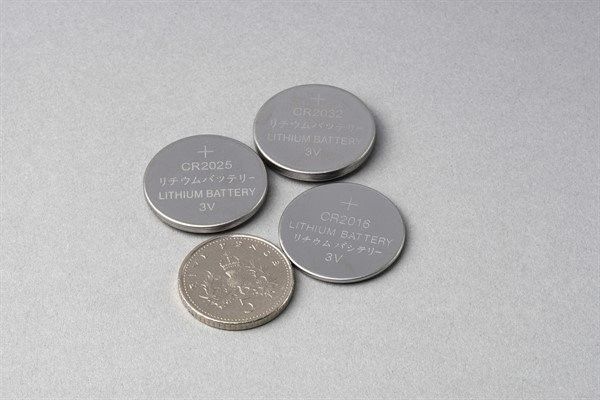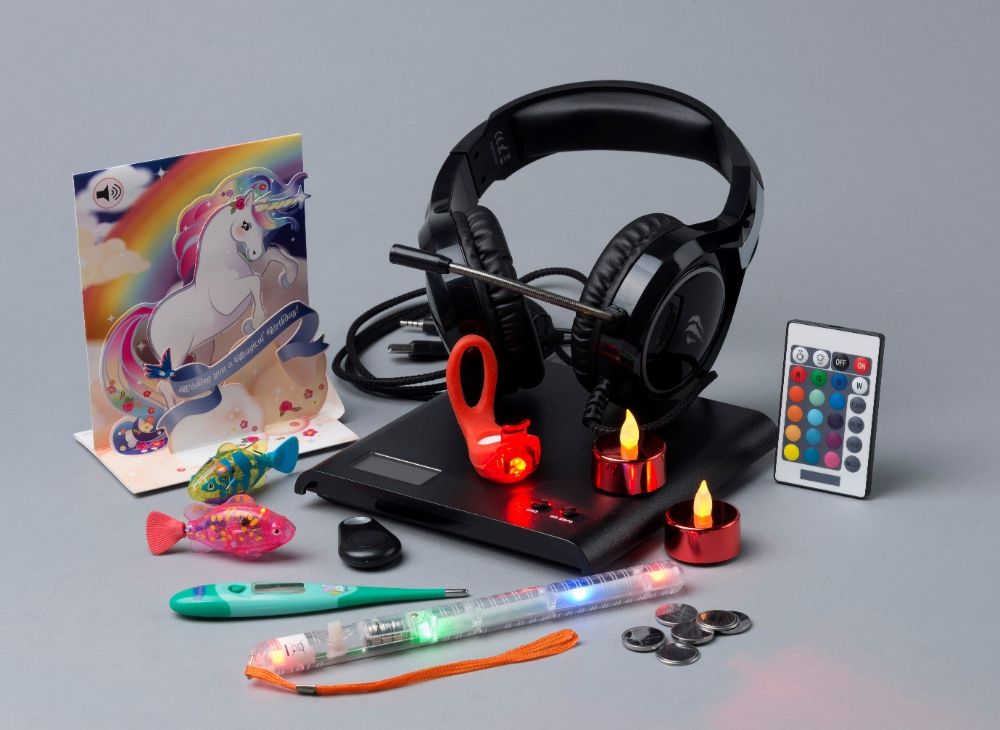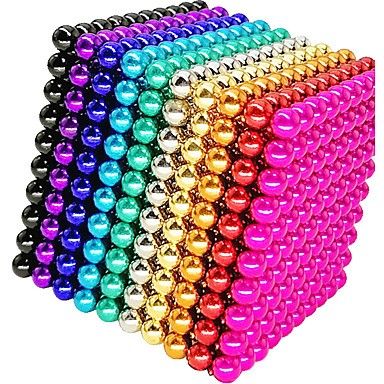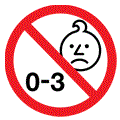Swallowed an object
If you are concerned your child has swallowed an object such as a coin, toy, magnet or battery you should take them to the nearest Accident and Emergency Department.
This advice has been written for after your child has been reviewed by a health professional for their swallowed object.
If your child has any of the following:
- Swallowed a battery
- Swallowed a magnet
- Swallowed something large or sharp
- Swallowed the object to harm themselves
- Drooling more than normal
- Noisy breathing, difficulty breathing or a new cough
- Choking or coughing when eating or drinking
- Refusing food or eating less than usual
- Starts vomiting after swallowing an object
- Develops severe pain
- Blood in their poo
- Confused or difficult to wake
You need urgent help.
Go to the nearest Accident and Emergency Department or phone 999
If your child has any of the following:
- Mild pain
- Fever
- Not had a poo for more than 1 day when you would normally have expected them to do so
You need to contact a doctor or nurse today.
Please ring your GP surgery or call NHS 111
If none of the above features in red or amber are present.
Self care
Continue providing your child’s care at home. If you are still concerned about your child, call NHS 111
This guidance has been reviewed and adapted by healthcare professionals across West Yorkshire with consent from the Hampshire development groups.
Most swallowed objects are harmless and will pass through the digestive system without any problem.
It can be challenging to stop young children putting things in their mouth that they might swallow. There are some things you can do to reduce the risk of accidents happening. You can learn about what objects are particularly harmful if swallowed and then reduce the risk of your child getting hold of these objects.
Choking
Food is the most common thing for children to choke on. Babies and young children are still learning how to chew, swallow and breathe in the right order. They can easily choke on food, especially if they are not concentrating.
- Always stay with your baby when bottle feeding. Do not prop the bottle up to feed your baby. They won't be able to push the bottle away if they choke.
- Babies can choke on something as small as a grape (these should be cut lengthways) or soft like a marshmallow. Cut food into ‘thin sticks’ not ‘balls’ to prevent choking.
- Don’t give young children hard foods such as boiled sweets or whole nuts.
- Encourage toddlers and young children to sit still while they eat and stay with them.
Keep small objects out of your child's reach for example buttons, coins and small toy parts. Even small babies can grab and reach for things.
For more information visit Child Accident Prevention Trust.
What to do if your child is choking:
- If you can see the object, try to remove it.
- If you can't see the object, don't try to remove it. You could make things worse.
- If your child is coughing loudly, it's unlikely they are choking. Encourage them to carry on coughing and stay with them.
- If your child is silent or cannot breathe properly, call for help immediately. Call 999.
- Give 5 back blows then 5 chest thrusts. See video below.
Button Batteries


All batteries can be harmful if swallowed but button batteries are particularly dangerous. These batteries are flat and round. Even ‘flat’ or ‘dead’ batteries still hold enough power to badly hurt a child.
Button batteries are found in many objects that you might have at home, including toys, car keys, remote controls, weighing scales, hearing aids and musical greeting cards.
Button batteries can get stuck in the food pipe and cause permanent damage within hours.
If you think your child has swallowed a button battery:
- Don’t delay.
- Take them to A&E straight away or call 999 for an ambulance.
- Don’t let them eat or drink and don’t make them sick.
- They will need an operation to remove it.
What you can do:
- Make sure the battery case is shut and secured on all objects in your home.
- Know what objects in your home use button batteries. Do not let your child play with them.
- Be careful buying toys online, overseas or in markets as these may not meet UK toy safety standards.
- Teach your child about the dangers of button batteries.
- Keep spare batteries locked away.
- Dispose of old batteries safely. Anywhere that sells batteries, such as a supermarket, should offer collection of old batteries.
Visit www.capt.org.uk for more information on button battery safety.
Magnets
 Magnets are commonly found around the house (desk toys, stress relivers, jewellery) and many children's toys include small magnets. If a child swallows more than one magnet, they can stick to each other inside the body and cause damage. If your child has swallowed a magnet, bring them to the Accident and Emergency Department straight away. They may need an operation to remove them.
Magnets are commonly found around the house (desk toys, stress relivers, jewellery) and many children's toys include small magnets. If a child swallows more than one magnet, they can stick to each other inside the body and cause damage. If your child has swallowed a magnet, bring them to the Accident and Emergency Department straight away. They may need an operation to remove them.
What you can do:
- Do not buy magnetic ball toys for children
- Talk to children about the dangers of these toys and magnets
- If you have them in the house consider getting rid of them
Visit www.capt.org.uk for more information on magnetic toys
Toy Safety
Most children's toys are safe. Accidents involving toys usually happen when a young child plays with a toy that is meant for an older child.
- Most toys sold in the UK are safe if you follow the instructions. The law says all toys must have a suggested age range so they aren't given to children too young to play with them.
- One of the main causes of toy accidents is toys with small parts. If a child is given a toy designed for an older child they could swallow small parts.
Toys sold by well known shops are generally safe. Online marketplaces, markets or discount shops may not be. Don’t assume that just because you can buy something it is safe.
Be careful with second hand toys, check that they are in good condition.
Marks to guide you

A CE mark shows that the toy complies with European safety legislation.

A Lion Mark is a good indicator of a toy’s safety.

Babies and toddlers put nearly everything in their mouths. This is why some toys are marked with age restrictions. Look out for this symbol as a helpful guide.
Throwing things away can seem wasteful. If a toy is broken or damaged it could go on to cause accidents for other children.
You can treat your child's very minor illnesses and injuries at home.
Some illnesses can be treated in your own home with support and advice from the services listed when required, using the recommended medicines and getting plenty of rest.
Sound advice
Children can recover from illness quickly but also can become more poorly quickly; it is important to seek further advice if a child's condition gets worse.
For information on common childhood illnesses go to What is wrong with my child?
You can treat your child's very minor illnesses and injuries at home.
Some illnesses can be treated in your own home with support and advice from the services listed when required, using the recommended medicines and getting plenty of rest.
Sound advice
Children can recover from illness quickly but also can become more poorly quickly; it is important to seek further advice if a child's condition gets worse.
For information on common childhood illnesses go to What is wrong with my child?
All community pharmacies across England are required to be Healthy Living Pharmacies. This means that they are able to offer advice on a range of healthy living matters which includes eating a healthy diet. They can provide information leaflets and give parents, carers and young people more information about other organisations that might also be able to help.
Pharmacists are experts in many aspects of healthcare, and can offer advice on a wide range of long-term conditions and common illnesses such as coughs, colds and stomach upsets. You don’t need an appointment, and many have private consultation areas. Your pharmacist will say if you need further medical attention.
Sound advice
- Visit a pharmacy if your child is ill, but does not need to see a GP.
- Remember that if your child's condition gets worse, you should seek further medical advice immediately.
- Help your child to understand. Watch this video with them about going to the pharmacy.
For information on common childhood illnesses go to What is wrong with my child?
All community pharmacies across England are required to be Healthy Living Pharmacies. This means that they are able to offer advice on a range of healthy living matters which includes eating a healthy diet. They can provide information leaflets and give parents, carers and young people more information about other organisations that might also be able to help.
Pharmacists are experts in many aspects of healthcare, and can offer advice on a wide range of long-term conditions and common illnesses such as coughs, colds and stomach upsets. You don’t need an appointment, and many have private consultation areas. Your pharmacist will say if you need further medical attention.
Sound advice
- Visit a pharmacy if your child is ill, but does not need to see a GP.
- Remember that if your child's condition gets worse, you should seek further medical advice immediately.
- Help your child to understand. Watch this video with them about going to the pharmacy.
For information on common childhood illnesses go to What is wrong with my child?
Health visitors are nurses or midwives who are passionate about promoting healthy lifestyles and preventing illness through the delivery of the Healthy Child Programme. They work with you through your pregnancy up until your child is ready to start school.
Health Visitors can also make referrals for you to other health professionals for example hearing or vision concerns, or to the Community Paediatricians, or the child and adolescent mental health services.
Contact your local Health Visiting Team:
Bradford Health Visitors or call - 01274 221223
Wakefield Health Visitors or call - 0300 373 0944
Craven Health Visitors or call - 01423 544265
Leeds Health Visitors or call - 0113 843 5683
Calderdale Health Visitors or call - 030 0304 5555 (local rate number)
Kirklees Health Visitors or call - 030 0304 5555 (local rate number)
Sound advice
Health visitors also provide advice, support and guidance in caring for your child, including:
- Breastfeeding, weaning and healthy eating
- Exercise, hygiene and safety
- Your child’s growth and development
- Emotional health and wellbeing, including postnatal depression
- Safety in the home
- Stopping smoking
- Contraception and sexual health
- Sleep and behaviour management (including temper tantrums!)
- Toilet training
- Minor illnesses
For more information about what Health Visitors do: What does a health visitor do?
Health visitors are nurses or midwives who are passionate about promoting healthy lifestyles and preventing illness through the delivery of the Healthy Child Programme. They work with you through your pregnancy up until your child is ready to start school.
Health Visitors can also make referrals for you to other health professionals for example hearing or vision concerns, or to the Community Paediatricians, or the child and adolescent mental health services.
Contact your local Health Visiting Team:
Bradford Health Visitors or call - 01274 221223
Wakefield Health Visitors or call - 0300 373 0944
Craven Health Visitors or call - 01423 544265
Leeds Health Visitors or call - 0113 843 5683
Calderdale Health Visitors or call - 030 0304 5555 (local rate number)
Kirklees Health Visitors or call - 030 0304 5555 (local rate number)
Sound advice
Health visitors also provide advice, support and guidance in caring for your child, including:
- Breastfeeding, weaning and healthy eating
- Exercise, hygiene and safety
- Your child’s growth and development
- Emotional health and wellbeing, including postnatal depression
- Safety in the home
- Stopping smoking
- Contraception and sexual health
- Sleep and behaviour management (including temper tantrums!)
- Toilet training
- Minor illnesses
For more information about what Health Visitors do: What does a health visitor do?
School nurses care for children and young people, aged 5 to19, and their families, to ensure their health needs are supported within their school and community. They work closely with education staff and other agencies to support parents, carers and the children and young people, with physical and, or emotional health needs.
Contacting the School Nurse
Primary and secondary schools have an allocated school nurse. Phone your child’s school to ask for the contact details of your named school nurse.
There is also a specialist nurse who works with families who choose to educate their children at home.
Contact your local school nursing team:
Bradford School Nurses 01274 221203
Wakefield School Nurses (0 to 19 service) 0300 373 0944 (local rate number)
Leeds School Nurses 0113 843 5683
Calderdale School Nurses 030 3330 9974 (local rate number)
Kirklees School Nurses 0300 304 5555 (local rate number)
Sound Advice
Before your child starts school your health visitor will meet with the school nursing team to transfer their care to the school nursing service. The school nursing team consists of a school nursing lead, specialist public health practitioners and school health staff nurses.
They all have a role in preventing disease and promoting health and wellbeing, by:
- encouraging healthier lifestyles
- offering immunisations
- giving information, advice and support to children, young people and their families
- supporting children with complex health needs
Each member of the team has links with many other professionals who also work with children including community paediatricians, child and adolescent mental health teams, health visitors and speech and language therapists. The school health nursing service also forms part of the multi-agency services for children, young people and families where there are child protection or safeguarding issues.
School nurses care for children and young people, aged 5 to19, and their families, to ensure their health needs are supported within their school and community. They work closely with education staff and other agencies to support parents, carers and the children and young people, with physical and, or emotional health needs.
Contacting the School Nurse
Primary and secondary schools have an allocated school nurse. Phone your child’s school to ask for the contact details of your named school nurse.
There is also a specialist nurse who works with families who choose to educate their children at home.
Contact your local school nursing team:
Bradford School Nurses 01274 221203
Wakefield School Nurses (0 to 19 service) 0300 373 0944 (local rate number)
Leeds School Nurses 0113 843 5683
Calderdale School Nurses 030 3330 9974 (local rate number)
Kirklees School Nurses 0300 304 5555 (local rate number)
Sound Advice
Before your child starts school your health visitor will meet with the school nursing team to transfer their care to the school nursing service. The school nursing team consists of a school nursing lead, specialist public health practitioners and school health staff nurses.
They all have a role in preventing disease and promoting health and wellbeing, by:
- encouraging healthier lifestyles
- offering immunisations
- giving information, advice and support to children, young people and their families
- supporting children with complex health needs
Each member of the team has links with many other professionals who also work with children including community paediatricians, child and adolescent mental health teams, health visitors and speech and language therapists. The school health nursing service also forms part of the multi-agency services for children, young people and families where there are child protection or safeguarding issues.
GPs assess, treat and manage a whole range of health problems. They also provide health education, give vaccinations and carry out simple surgical procedures. Your GP will arrange a referral to a hospital specialist should you need it.
All children should be registered with a GP. Anyone in England can register for free with a GP surgery. You do not need proof of address or immigration status, ID or an NHS number.
Sound advice
You have a choice of service:
- Doctors/GPs can treat many illnesses that do not warrant a visit to A&E.
- Help your child to understand. Watch this video with them about visiting the GP or going to a walk in centre
For information on common childhood illnesses go to What is wrong with my child?
GPs assess, treat and manage a whole range of health problems. They also provide health education, give vaccinations and carry out simple surgical procedures. Your GP will arrange a referral to a hospital specialist should you need it.
All children should be registered with a GP. Anyone in England can register for free with a GP surgery. You do not need proof of address or immigration status, ID or an NHS number.
Sound advice
You have a choice of service:
- Doctors/GPs can treat many illnesses that do not warrant a visit to A&E.
- Help your child to understand. Watch this video with them about visiting the GP or going to a walk in centre
For information on common childhood illnesses go to What is wrong with my child?
If you’re not sure which NHS service you need, call 111. An adviser will ask you questions to assess your symptoms and then give you the advice you need, or direct you straightaway to the best service for you in your area.
Please note, the online version of NHS 111 is only recommended for children over the age of 5. If your child is under 5 years old, please phone 111.
NHS 111 can also direct you to your nearest urgent treatment centre (minor injuries unit or walk-in centre).
Sound advice
Use NHS 111 if you are unsure what to do next, have any questions about a condition or treatment or require information about local health services.
For information on common childhood illnesses go to What is wrong with my child?
If you’re not sure which NHS service you need, call 111. An adviser will ask you questions to assess your symptoms and then give you the advice you need, or direct you straightaway to the best service for you in your area.
Please note, the online version of NHS 111 is only recommended for children over the age of 5. If your child is under 5 years old, please phone 111.
NHS 111 can also direct you to your nearest urgent treatment centre (minor injuries unit or walk-in centre).
Sound advice
Use NHS 111 if you are unsure what to do next, have any questions about a condition or treatment or require information about local health services.
For information on common childhood illnesses go to What is wrong with my child?
A&E departments provide vital care for life-threatening emergencies, such as:
- loss of consciousness
- breathing difficulties
- severe bleeding that cannot be stopped
- major trauma such as road traffic collisions
If you’re not sure it’s an emergency, call 111 for advice.
Sound advice
A&E departments provide vital care for life-threatening emergencies, such as:
- loss of consciousness
- breathing difficulties
- severe bleeding that cannot be stopped
- major trauma such as road traffic collisions
If you’re not sure it’s an emergency, call 111 for advice.



